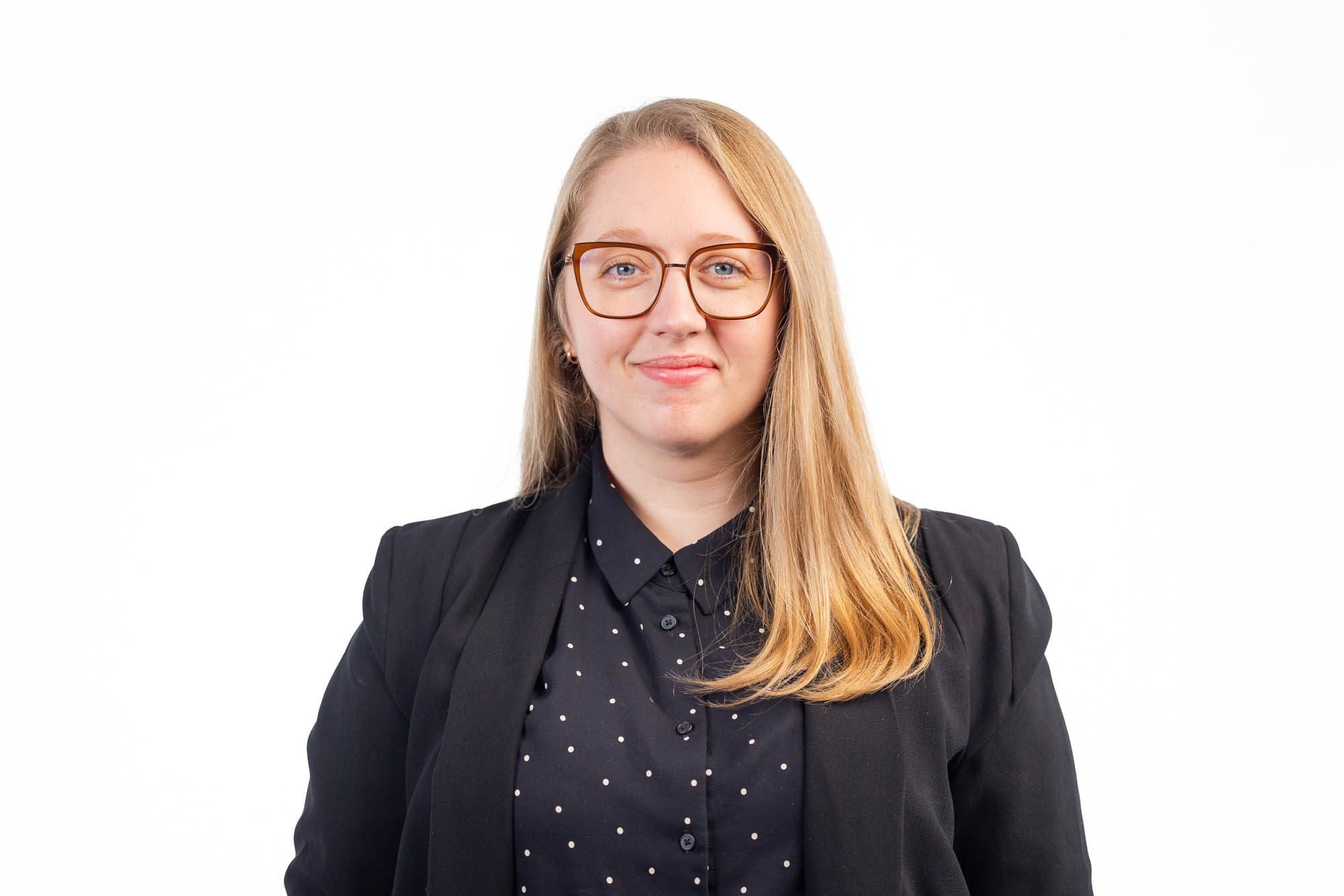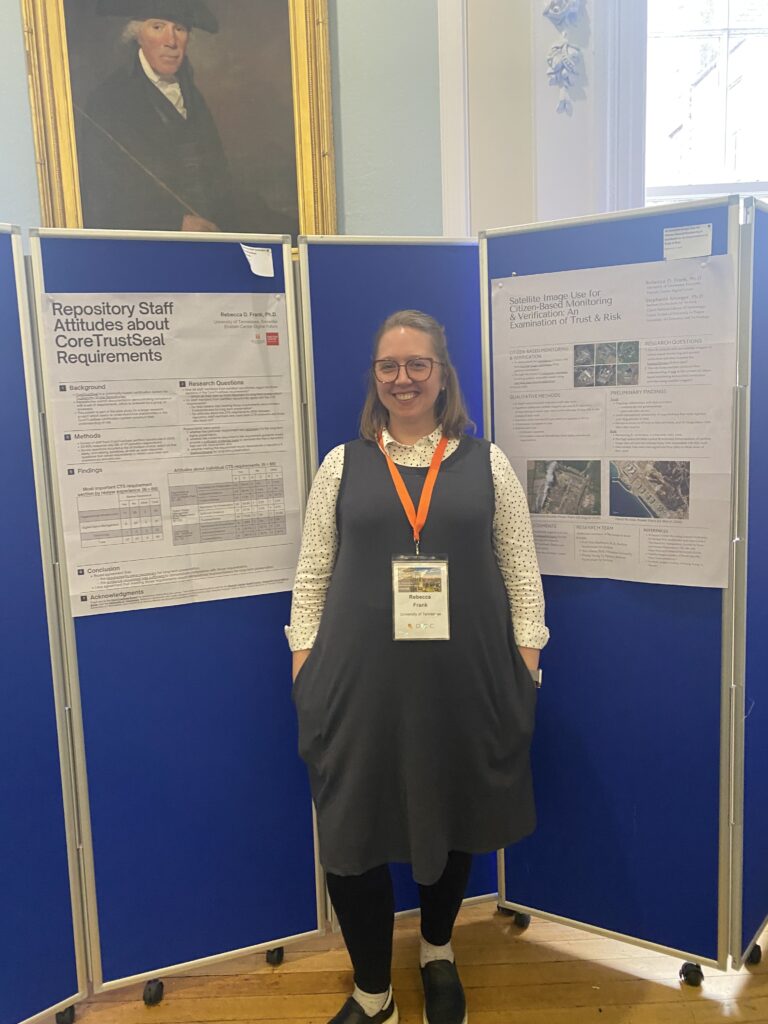SIS Assistant Professor Rebecca Frank Works to Preserve History and Safeguard the Future through her Research

School of Information Sciences Assistant Professor Rebecca Frank’s research looks at the risks and rewards of digital curation, digital preservation, data sharing and reuse in areas such as AI satellite imagery and preserving history.
Frank received her bachelors, masters, and PhD from the University of Michigan. She is currently teaching data stewardship and ethics along with digital curation for SIS. Before joining the University of Tennessee, Knoxville, Frank was the Einstein Center Digital Future Junior Professor for Information Management at the Berlin School of Information Science at Humboldt-Universität zu Berlin.
Frank said, “As a teacher, it is my responsibility to provide students with opportunities for intellectual and professional development and growth. I believe that focusing on big, fundamental questions in information sciences empowers students to become lifelong learners and engaged professionals.”
Frank is currently working on several projects along with teaching. One of her projects explores satellite imagery and the role it plays in our lives, specifically when it comes to monitoring nuclear facilities.
“We are looking at people who use satellite images or pictures from satellites to try and identify and monitor nuclear facilities around the world. They have the goal of advocating for disarmament and nonproliferation. It’s people who are saying it’s the job of citizens to hold governments accountable, right? And so I’m interested in understanding how people with that goal, who are doing that high-stakes work, find and use satellite images as a data source,” she explained.
Frank said she’s asking questions such as: how do people choose trustworthy data sources, decide what data is authentic and trustworthy, and what sources will give people reliable and accurate information? Members on her team are also working to create deepfakes of satellite images in order to understand how the proliferation of generative AI and synthetic imagery will affect trustworthiness of satellite imagery in the future.
“It has so far been difficult to systematically assess the true long-term potential and limits of citizen-based monitoring in this context. This project seeks to close this gap by contributing to a better understanding of the potential of broad access to open data, transparency, and the respective challenges for equity, privacy, and data authenticity,” she said.

Another project Frank is working on is The Social Construction of Risk in Trustworthy Digital Repository Audit & Certification. In this study, she is looking at trustworthy digital repository audit and certification.
She said, “In this research, I examine how people and organizations entrusted with the care of unique and valuable digital information such as research data, government information, or cultural heritage develop and apply best practices for long-term preservation.”
Frank said, although these are very different topics, the common thread is a focus on risk. Frank’s research broadly asks questions about social factors that influence how people construct their understanding of risk and examines the ways in which understanding of risk influences the behavior and actions of people who use and care for digital information.
In February, Frank presented both of these projects at the International Digital Curation Conference in Edinburgh, Scotland. This was the first time the conference has been in person since 2020 due to the COVID-19 pandemic.
“It was really fascinating to reconnect with this community, to share my own research and to see what others have been working on,” she said.
Frank has been teaching at UT for the past two years and says, when she’s not working, she enjoys spending time with her husband and her dog, Mabel, hiking and enjoying the incredible natural beauty of East Tennessee.
The next workshop she will be hosting is in April on disaster planning for digital repositories.
SIS Assistant Professor Rebecca Frank Works to Preserve History and Safeguard the Future through her Research written by Kristen Gallant and originally published on the College of Communication & Information site.